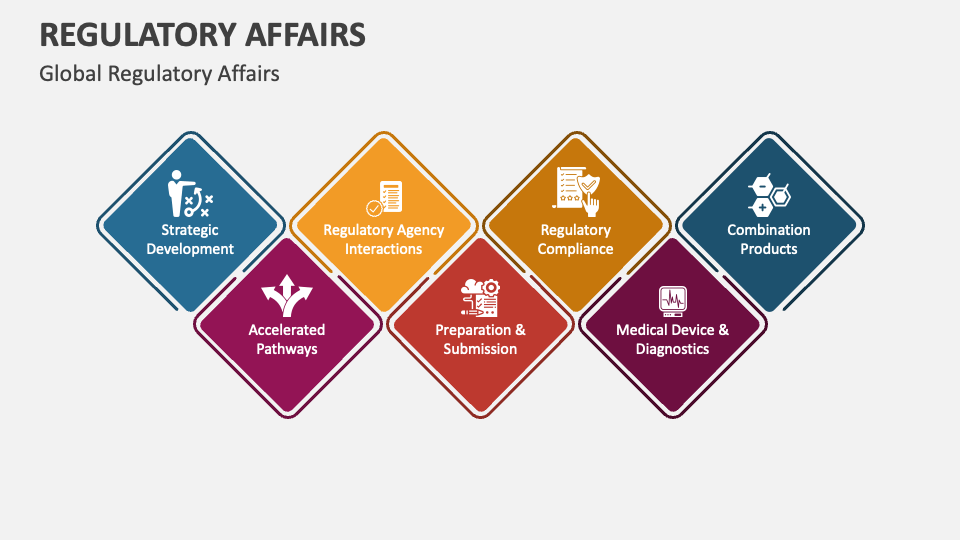Regulatory Affairs in the Age of Digital Health
Regulatory Affairs in the Age of Digital Health
Blog Article

The rapid advancement of digital health technologies is reshaping the landscape of healthcare delivery, offering innovative solutions that enhance patient care and streamline clinical processes. In this evolving environment, regulatory affairs play a crucial role in ensuring that these technologies are safe, effective, and compliant with established standards and regulations. As digital health products such as mobile health applications, telemedicine platforms, and wearable devices become increasingly mainstream, regulatory professionals must navigate a complex web of guidelines that govern their development and use.
The intersection of regulatory affairs and digital health brings forth unique challenges and opportunities. Stakeholders must understand the implications of emerging technologies while balancing the need for innovation with patient safety and regulatory compliance. This dynamic interplay is critical, as regulators adapt to the pace of digital innovation, ensuring that the regulatory framework keeps up with the rapid changes in the health tech ecosystem. As we delve into the nuances of regulatory affairs in this digital age, it becomes evident that a proactive and informed approach is essential for driving successful outcomes in the realm of healthcare technology.
Overview of Regulatory Affairs
Regulatory affairs is a critical area in the development and commercialization of healthcare products, including pharmaceuticals, medical devices, and digital health technologies. This field focuses on ensuring that these products meet the necessary compliance standards set by government agencies such as the Food and Drug Administration in the United States or the European Medicines Agency in Europe. Professionals in regulatory affairs work to navigate the complex landscape of regulations, guidelines, and legislative requirements to facilitate the approval process and maintain product safety and efficacy throughout their lifecycle.
In recent years, the rise of digital health innovations—including telemedicine, mobile health applications, and wearable health devices—has introduced unique challenges and opportunities within regulatory affairs. These technologies often blur the lines between healthcare and technology, creating a need for tailored regulatory frameworks that address issues such as data privacy, cybersecurity, and clinical validation. As digital health continues to evolve rapidly, regulatory professionals must adopt a proactive approach to stay ahead of the evolving landscape and ensure that new solutions can be integrated into standard healthcare practices safely and effectively.
The role of regulatory affairs is not only about compliance but also about strategic guidance. Regulatory professionals collaborate with various teams, including research and development, quality assurance, and marketing, to inform product design and strategy early in the development process. By fostering a culture of compliance and understanding the regulatory environment, organizations can streamline their pathways to market, reduce the risk of delays, and ultimately enhance patient access to innovative healthcare solutions.
Regulatory Affairs Program
Challenges in Digital Health Regulation
The rapid evolution of digital health technologies poses significant challenges for regulatory affairs. One of the primary issues is the pace at which innovations are developed compared to the slower, more deliberate nature of regulatory processes. This disparity can lead to uncertainties for developers who seek timely market entry, potentially stifacing innovation. Regulators often find it difficult to keep up with new technologies such as telemedicine applications, wearable devices, and artificial intelligence in healthcare, resulting in a reactive rather than proactive approach to regulation.
Data privacy and security are also major concerns in the realm of digital health. As health technologies increasingly rely on data collection and sharing, ensuring that patient information is protected becomes critical. Regulators must navigate existing laws while addressing new challenges presented by digital platforms. This includes managing risks associated with data breaches and misuse, which can undermine public trust in digital health solutions. Striking a balance between fostering innovation and safeguarding patient rights is essential yet difficult.
Lastly, the regulatory landscape is often fragmented, with different countries and regions implementing varying standards for digital health solutions. This complexity creates barriers for companies that aim to operate in multiple markets, as they must tailor their products to meet diverse regulatory requirements. Achieving global harmonization in regulatory practices would not only simplify market access but also enhance the safety and efficacy of digital health technologies worldwide. Addressing these regulatory inconsistencies is crucial for the successful integration of digital health into mainstream healthcare systems.
Future Trends in Regulatory Affairs
As digital health continues to evolve, regulatory affairs will see increased collaboration between public and private sectors. This collaboration will be essential in developing frameworks that support innovation while ensuring patient safety. The emergence of partnerships between regulatory bodies and technology companies will help establish guidelines that adapt to the rapid pace of digital advancements. These partnerships aim to create a more responsive regulatory environment that fosters the growth of digital health solutions.
Artificial intelligence and machine learning will play a pivotal role in shaping regulatory practices. The use of AI tools to analyze data and predict outcomes can improve risk assessment processes and facilitate faster approvals for new digital health technologies. Regulators will increasingly rely on these technologies to streamline their operations, allowing for more efficient reviews and post-market surveillance of products. This shift will require regulatory professionals to enhance their technical skills and adapt to new methodologies in data analysis.
Furthermore, regulatory frameworks will likely become more flexible to accommodate the evolving nature of digital health tools. The concept of adaptive regulation will emerge, allowing for continuous assessment throughout a product's lifecycle. This flexibility will enable quicker responses to emerging technologies and changing market demands while maintaining rigorous safety and efficacy standards. As consumer demand for digital health solutions grows, regulators will need to balance innovation with the protection of public health in an increasingly digital landscape.
Report this page